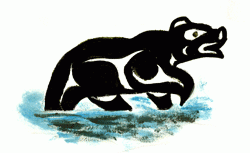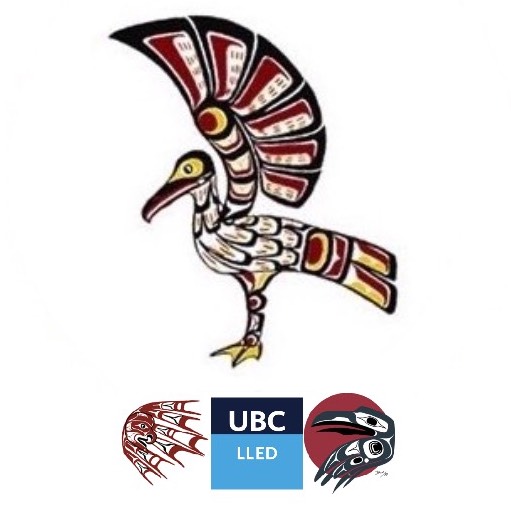The Power of Language: An Appeal for Language Educational Programs as Correctional Tools for Aboriginal Offenders in Canada Today
![]()
Addressed to:
The Aboriginal Initiatives Directorate of the Correctional Service of Canada (C.S.C)
The honourable Vic Toews – Minister of Justice and Attorney General of Canada
The honourable Arnold Galet – Commissioner of Corrections
Presented by :
Jesse Gabriel Singer (B.A. pending),
U.B.C. campus, Vancouver. July 20, 2006
![]()
Honourable guests: As I am sure you are all well aware of, the state of Aboriginal offenders in Canada today is still a serious unresolved issue. The Correctional Service of Canada website states that while First Nations Canadians today, make up only 2.4 percent the National population, they fill up a staggering 18 percent of our National prison population. This concerning overrepresentation of Aboriginals in our criminal justice system needs to stop, and we need more solutions to make that happen. Prison, as we have seen has not been working alone as a deterrent, and has failed many in the past.
We have come a long way over the past years in terms of acknowledging that this is the case, and that the situation for Aboriginal offenders in our Country is unique and needs to be dealt with in manner that is equally unique. We have recognized that we Aboriginal offenders and communities need solutions that address the actual problems at hand which affect them. It is now recognized that the social and family problems that affect many Aboriginals to this day today stem from a long history of discrimination and persecution at the hands of a racist government, and carried out through such institutions as residential schools that have harmed so many. We have recognized this at last and have been working towards alternatives to prison that may actually address the problems afflicting Aboriginals, damaged from this history; such as lack of self identity, loss of culture and lack of community. In 1994 the government officially recognized the importance of “holistic healing”, and has implemented several programs and facilities aimed at restoring an Aboriginal offender’s sense of balance in their life (C.S.C, 2004). And in 1997 the Aboriginal Initiatives Directorate was created to come up with new solutions. Currently there are 8 healing loges and 24 halfway houses, as well as several other noteworthy programs across the country that aim to heal offenders in spiritual, cultural, and communal ways (C.S.C, 2006). The ultimate goal of these programs is to heal an offender and reintegrate them back into the community.
Language is something that was taken away from so many or our Aboriginal peoples in the past. In residential schools children were stripped of their Native mother tongues, and forced to learn English. Consequently, the once abundant lively sounds of so many distinct and unique Native languages that were heard across this nation for millennia have slowly been drowned out. Many of the remaining 53 languages left today are in extreme danger of extinction, and several have already disappeared completely.
I am here today to convince you that along the journey towards healing these people and communities there must be a place for revitalizing Aboriginal Languages within these people, as a means achieving this goal.
How is language related to healing an offender, you may ask? First of all language can be a means for joining a community as a confident, and inspiring member. When Aboriginals are stripped of their language they are stripped of a whole way of being in this world that is unique to their people. Language is more than just a part of one’s culture, or history, or identity, but rather it is all of these things encompassed in one. Within one’s language lay the teachings and knowledge of one’s ancestors, and the Cosmovision of a particular culture- the way they interpret the universe around them. All of these things make up a person’s sense of identity and belonging in this global community. And so, when one is speaking their native language, they are once again communicating with their ancient community, and are professing membership, and re- joining their people on whatever level you look at it. On a spiritual and cultural level, learning one’s lost language can revive what has been lost, and with this revival of spirit and identity can come the desire to use one’s life in a positive manner because life may no longer be meaningless. The lack of self identity and pride that has been inflicted on our Aboriginal people by colonizing forces has led to alcohol and drug abuse, crime, depression, and suicide for far too many. The current state of these offenders is a cry for help, to be healed of these problems; to have a void filled in. Part of this filling this void can, and should be reinstalling a sense of identity and belonging and pride in being First Nations, and in knowing one’s own language.
As well as gaining a sense of identity, regaining, or learning one’s traditional language for the first time can help Aboriginal people find spiritual, as well as communal, and cultural healing. With the acquisition of language can come all sorts of teachings that will surely help an offender on their way to healing. The healing lodges and spiritual activities that are being used to help offenders of all kinds, could benefit greatly by an increased involvement of language in this regard.
Finally, while reviving Aboriginal languages can help an offender make peace with him or her self, it can also give one incentive to join a community of like minded people once they are free again. In joining the community again, with this newfound inspiration, and skill in knowing one’s language they are also helping to build stronger Aboriginal communities. This could eventually be much needed progress towards stronger and more functional Aboriginal communities that would, intern, inevitably lower this people’s involvement in crime in the future.
Ideally, what I would like to see take place in the future of Aboriginal corrections in Canada is a serious commitment to language revival, among offenders, and in the community at large. This may involve programs for young offenders, who can learn a language of their choice, as an alternative to community service for example. Aboriginal languages should also be offered in every prison for adult offenders, men and woman, and although Aboriginals should get priority, there might also be classes available for non Aboriginal inmates- after all increasing awareness, sensitivity, and respect for Aboriginals in this country would help the situation out as well. In hiring teachers, and bringing in elders to teach offenders, we would be encouraging the prosperity of Aboriginals in and outside of the criminal justice system, as well as connecting offenders with positive role models and social support.
In conclusion, Language cannot be left of the list of healing for our Aboriginal offenders in Canada, as an integral part of the healing process. Although the goals I have set in my speech here today may seem overly ambitious, I believe that they can, and must be worked towards and achieved. This will require a great commitment both monetarily and time wise, but these resources are available. After all, in 2000-2001, it cost an average of $66, 381 a year to keep one male inmate in prison and over $100, 000 for a female inmate. These are resources that can be spent in much better ways.

